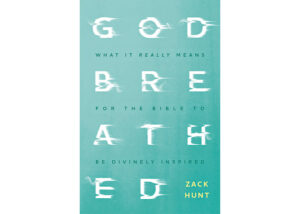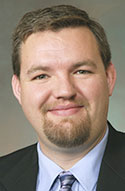This past year I prepared for ordination with Mennonite Church Canada. Part of the process of ordination is to read and comment on aspects of our Confession of Faith in Mennonite Perspective.
While I was generally familiar with the Confession, a new question formed in my mind as I read over it again. How does the Mennonite church articulate and express authority? I did not find a clear answer to this question and I think at the very least we need to be clear about this ambiguity. Within the Confession we have authoritative statements on Scripture, Jesus, Holy Spirit, and the church that create confusing lines of authority. There is not space here it outline all the relevant passages so I will try and summarize what I see happening.
- The confession teaches us how to read the Bible.
- The confession is in submission to the Bible.
- The Bible is the Word of God written and is authoritative for establishing truth and error.
- Jesus is the Word made flesh and so the Bible finds its fulfillment in him.
- Jesus is known in the words of the Bible.
- The Holy Spirit continues to speak.
- The Holy Spirit will not contradict the Bible’s witness of Jesus.
- The Bible is authoritative for the church.
- It is in the church that the Bible must be interpreted.
I can’t help but see these statements as creating a recipe for confusion, frustration, and abuses. As I read our Confession and as I read the Being a Faithful Church documents that are coming from our national church leadership, I see the commendable desire to engage the ongoing task of discernment, but I remain concerned over the context this task is placed within. The common thread in these intersecting lines is the Bible. We ultimately claim the Bible as the final authority.
What I want to suggest, though, is that this practice is unbiblical. If we want to look for criteria in how to understand and interpret the Bible then we need to recover the multitude of voices within the Bible that point away from the Bible.
These voices stretch from “empty space” between the cherubs’ wings in the Holy of Holies that allowed God to speak presently into situations. Prophets called for renewed visions of engagement with the world. Paul called the church to responsibility with having “the mind of Christ” (1 Cor. 2:16). John is called away from worship to see Jesus in the churches (Rev. 1:10). Jesus declares that to begin and end with scripture will lead away from life (John 5:39-40).
Perhaps it could be argued that I am simply trying to use the Bible to create another authoritative reading. I want to be clear on this. The Bible as we have it is not self-evidently authoritative. I am simply interested in reading the Bible well and gaining from what it has to offer.
To continue down our current path is to continue the risk of allowing the Bible to be an authoritative object, or idol as we would call it in another vocabulary. I take the Bible very seriously. It is this seriousness that has led me to question how the Mennonite church continues to use the Bible.
I think it is human nature to seek the affirming presence of some object of authority. This can be science, politics, status, and wealth as easily as the Bible. It is perhaps time to take the fearful and necessary steps of acknowledging that we live by no authority that we did not create. Having received the Spirit and endowed with the mind of Christ and with Scripture as an accepted witness to these things, let’s get about the business of being a faithful church.







Leave a Reply
You must be logged in to post a comment.